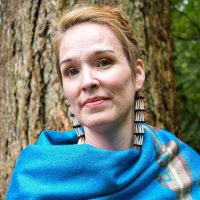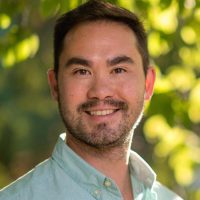Building Resilient Food Systems During COVID-19 and Beyond
The Right to Eat: Tackling Racism & Inequality in the Food System
From seasonal migrant workers producing food in unsafe working conditions to Black and Indigenous communities struggling to afford their next meal, COVID-19 has laid bare the foundational inequalities in Canada’s food system. Join Jolene Andrew, Just Transition Coordinator for the Working Group on Indigenous Food Sovereignty, Paul Taylor, Executive Director of FoodShare Toronto, Christina Lee 李嘉明, Project Manager for Transformation Projects & Food Programs with Hua Foundation, and Colin Dring, PhD candidate in Land and Food Systems, Integrated Studies in Land and Food Systems, for a discussion on the racial inequalities that exist in our food system, and the systemic changes required to ensure just, sovereign, and reliable food access for all.
About the Presenters

Jolene Andrew
Jolene Andrew, raised in Witset in her Gitxsan – Wit’suwet’en Heritage, living in unceded Salish territories. She has worked in non-profits developing Indigenous lead initiatives for 18 years, from canoe & cultural development to organizational strategic planning, to build decolonial approaches to Indigenous community engagement, and community development. Centring her practice on land based leading, Jolene engages with systems to build harmonious practices towards socio-ecological balance. With grassroots approaches to building community, she looks at how Indigenous cultures intersect with new system design to implementation, driven by community involvement. Presenting her land based leadership work at the United Nations Commission on the Status of Women 2018, and is involved in an Energy-Focussed-Asset-Based-Community Development project with 5 remote communities in northern canada, acting as Indigenous Leadership advisor to the Coady International Institute, a community development leader around the world and the Pembina Institute, leader in transitioning to clean energy.

Paul Taylor
Paul Taylor is the Executive Director of FoodShare Toronto, and a lifelong anti-poverty activist. Growing up materially poor in Toronto, Paul has used his experience to fuel a career focused not just on helping others, but dismantling the beliefs and systems that lead to poverty and food insecurity, including colonialism, capitalism, white supremacy, and patriarchal structures.

Christina Lee 李嘉明
Christina Lee 李嘉明 (she/they) is the Project Manager for Transformation Projects & Food Programs with Hua Foundation, and a 2.5 generation Cantonese settler living on unceded territories including the lands of the three title-holding Nations: the xʷməθkʷəy̓əm (Musqueam), skx̱wú7mesh (Squamish), and səlílwətaʔ/sel̓íl̓witulh (Tsleil-Waututh). She has a wide-ranging portfolio of work including program-building, public engagement, community-based research, and policy analysis.

Colin Dring
Colin Dring works towards food system justice and sustainability in community with intersectional change makers. He is a community developer, a facilitator, a researcher, a connector, and inquisitive by nature. He has over ten years of experience in the field of community food security, agricultural and food system planning, community development, and agri-food policy.
Before pursuing his doctoral studies, Colin completed a Master’s of Science in Rural Planning (University of Guelph, 2012). Colin currently serves as Chair of the BC Food Systems Network, Secretary of the Sustainable Agricultural Education Association, and was a past member of the Working Group for Food Justice with the Vancouver Food Policy Council. Colin is now pursuing his doctoral studies at UBC’s Faculty of Land and Food Systems. He studies how colonial governments, in the unceded, ancestral territories of the xʷməθkʷəy̓əm (Musqueam), sḵwx̱wú7mesh (Squamish), and sel̓íl̓witulh (Tsleil-Waututh) nations, attempt to shape agricultural futures in contexts of difference, complexity, and unpredictability. This work inspires Colin’s studies and actions oriented towards an application of decolonizing, anti-racist, anti-patriarchal, anti-heteronormative framings to advance sustainable and equitable food systems and greater civic engagement through food and agricultural planning.
The Building Resilient Food Systems During COVID-19 and Beyond series is brought to you by the Centre for Sustainable Food Systems (CSFS), the BC Food Web, the Faculty of Land and Food Systems (LFS), and the Royal Bank of Canada. This webinar series focuses on answering fundamental questions about the resiliency of our food system during and beyond COVID-19.


